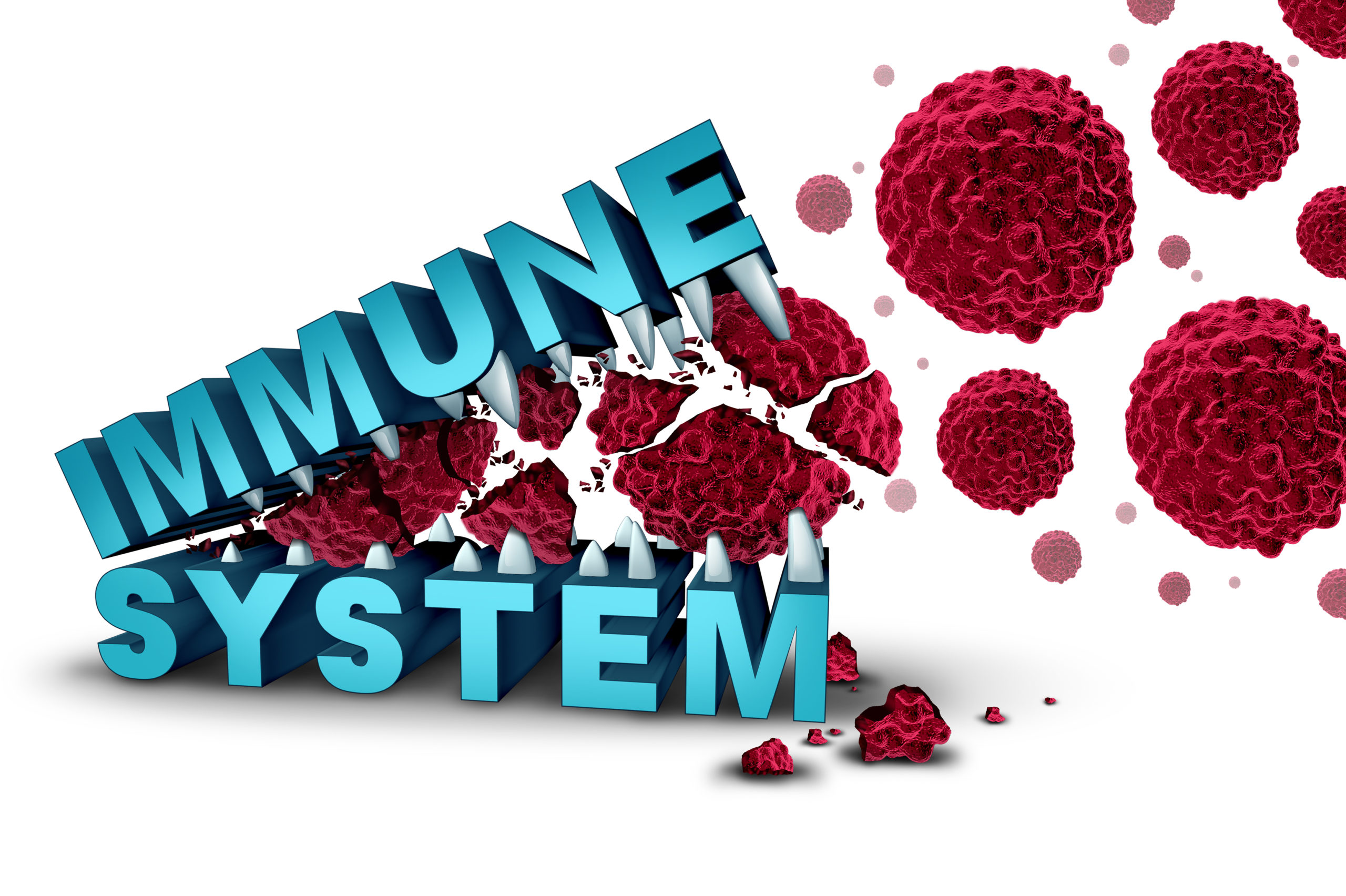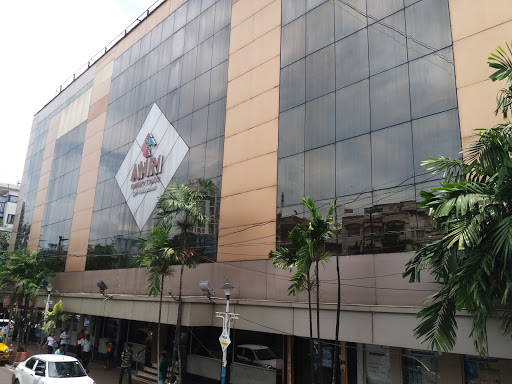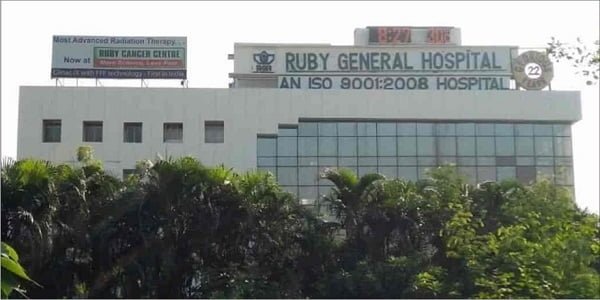Top 10 Best Allergy and Immunology Hospitals in Kolkata

Top 10 Best Allergy and Immunology Hospitals in Kolkata
In the healthcare system, hospitals play an important role. Hospitals are healthcare facilities that offer regular and ongoing medical, nursing, radiological, laboratory, and related services through organised medical staff and other qualified workers. Hospitals offer a range of acute, convalescent, and terminal care using diagnostic, preventative, and therapeutic methods to treat acute and chronic illnesses caused by diseases, traumas, and genetic defects. Because of all these diverse services, hospitals have been able to generate essential information for research, knowledge, teaching, and management.
The hospital is one of the foundational elements of any civilisation. They reflect the practical implementation of healthcare, one of the foundations that underpin a nation’s infrastructure. a country’s capacity to care for its citizens by providing an appropriate number of hospitals with the proper equipment and amenities each. The importance of hospitals in people’s lives today is growing due to increasing pollution levels and changing lifestyles. Because of this, more and more people are getting sick and needing access to high-quality healthcare.
Even in the most basic or obsolete facilities, a patient can receive more therapeutic options than they would at home. In hospitals, medical equipment is accessible to aid in the diagnosis and treatment of the sickest patients. Think about the scenario of an accident. A hospital will provide a high level of quick and adequate care than a doctor’s office or calling a doctor at home won’t. Only hospitals can provide all of these services, including emergency operations, critical care, and life support systems.

When you visit a hospital, you’ll see lots of nurses, doctors, and interns working there. There will always be multiple medical professionals treating a patient concurrently. When carried out appropriately, this procedure provides the patient with the greatest treatment attainable given their condition. Doctors confer with one another to determine the best course of treatment for a certain case to provide the patient with a clear diagnosis. There are many doctors and nurses available, so patients can consult as many as they choose. Most importantly, at a hospital with enough staff, no patient will ever be left alone at any time.
Without hospitals, we would have had to locate a specialist physician for our particular ailment in their office. The patients’ and their families’ numerous hassles would cause the valuable time to be lost on unimportant tasks. That search has been drastically reduced by hospitals. Patients can be brought to a hospital and directed to the appropriate wing, where the proper doctors will take care of the rest.
Hospitals serve as a significant source of employment for a sizeable percentage of the population. Working in a hospital is quite convenient and advantageous for new doctors and nurses because it provides them with the range of user experiences they require. In addition, hospitals also employ a sizeable number of people in professions like maintenance and equipment handling that are not necessarily connected to the delivery of healthcare.
At hospitals that receive government money or help, patients from underprivileged neighbourhoods might access treatment choices at a significantly cheaper cost. People from disadvantaged neighbourhoods frequently receive free healthcare, however obviously this depends on the nation’s infrastructure. Without hospitals, everyone would be forced to seek medical care from much more expensive private practitioners, making it practically impossible for the poor to receive the necessary treatment.
The government of a country disseminates knowledge about illness avoidance and immunisation through hospitals. A hospital’s infrastructure makes it possible to administer free vaccinations to a large number of people effectively and simply; without it, the system would be disorganised and challenging to manage.

Hospitals provide the specialised care that some illnesses require. If a person is infectious or has biohazardous microorganisms on them, they cannot be treated at home. Again, some diseases necessitate continual treatment, which can only be given by a hospital infrastructure. Patients with psychological illnesses, incidents of trauma, or abuse may occasionally only be treated securely in a hospital. Thanks to specialised facilities for both animals and other ailments, each segment of the population is guaranteed to receive the proper and particular treatment that they need.
Hospitals have always been associated with the disease rather than with health. We visit the hospital when we are ill because we are used to having our problems resolved fast. Hospitals can, however, play a much more substantial role by stressing the importance of lifestyle modifications and providing counselling services even before the patient becomes ill. By doing this, we can significantly improve the health of our population and reduce the amount we currently spend on healthcare.
How important Hospitals Are?
In addition to its relevance and significance in society, the following are some other justifications for why a hospital is required.
- Hospitals are essential for treating a range of ailments, diseases, and both minor and serious bodily function disorders.
- In addition to offering information on illness prevention and health promotion, hospitals also offer therapeutic services.
- For patients who lack these safeguards at home or in the community due to their contagious disease or any type of mistreatment, hospitals provide a safe environment.
- A hospital is available to everyone at any time with a health concern of any kind.
- Medical workers, such as nurses, doctors, and other support employees, are also employed by hospitals.
- The hospital environment fosters research in several fields and enhances nursing and medical expertise.
Allergy and Immunology
The study and treatment of immune system disorders, including allergic disease and its symptoms and reactions, such as asthma, rhinitis, sinus problems, seasonal allergies, and potentially fatal drug, food, and vaccine reactions, are the focus of the medical speciality known as allergy and immunology. Allergy and immunology deal with the thousands of immunological diseases that affect millions of people.
Millions of people worldwide are affected by allergy and immunologic illnesses, which are much more common than one might think. Most allergy sufferers have allergies because their immune systems overreact to typically safe substances.
Allergy and immunology have as their main focus the treatment of immune system problems. These disorders range in severity from the very common to the highly odd, afflict people of all ages and impact many organ systems. The following conditions are frequently treated by an allergist/immunologist (sometimes known as an “allergist”):
- Allergic conjunctivitis and other allergic eye disorders.
- Respiratory conditions such as asthma, hypersensitivity pneumonitis, allergic rhinitis, sinusitis, and occupational lung diseases.
- Immunological responses to food can result in gastrointestinal disorders such as eosinophilic esophagitis, gastroenteritis, and enteropathies caused by dietary proteins.
- Examples of allergic skin conditions include atopic dermatitis, contact dermatitis, acute and chronic urticaria, or angioedema.
- Adverse reactions to substances include foods, medications, immunizations, stinging insects, and more.
- Diseases that primarily affect the immune system, include primary immunological deficits including severe combined immune deficiency syndromes, antibody deficiencies, complement deficiencies, abnormalities in phagocytic cells, or other impairments in innate immunity and acquired immune deficiency.
- Such disorders include anaphylaxis and other systemic conditions involving mast cells or eosinophils.
- Autoimmune responses to self-antigens are a defining characteristic of diseases like auto-inflammatory illnesses.
- Transplantation of an organ, bone marrow, or stem cells.
How do Allergies work?
An allergic reaction may not immediately occur even after ingesting an allergen. The strategy as a whole offers the immune system time to become sensitive to the allergen before it results in a reaction. The immune system’s function also includes the gradual recognition and memory of the allergen. IgE antibodies are molecules that the immune system creates when it comes into touch with an allergen, and they lead to sensitivity to the offending material.
In response to them, histamine and other chemicals are released, leading to swelling and inflammation. This procedure is referred to as sensitization. This sensitization process may take a few days or perhaps several years for some people. Not all of the allergy symptoms may be experienced by the patient; only some of them may.

The Signs of Allergies
Inflammation and irritation are two of the primary causes of allergic reactions. However, the signs and symptoms depend on the type of allergen. Sinuses, airways, eyes, noses, stomachs, skin, and nasal passages can all be impacted by allergic reactions. Many people could confuse different conditions with allergic responses. While hay fever and the common cold have distinct causes, they both result in irritations.
The Causes of Allergies
Immunoglobin, sometimes referred to as IgE, is an antibody that preys on the immune system and triggers allergic reactions. These specific antibodies are then released to combat foreign and potentially dangerous biological components. To neutralise the allergen, the IgE that is released triggers the production of chemicals that cause the allergic reaction. Histamine, another chemical, tightens the muscles in the airways and the walls of blood vessels. The substance directs the nose lining to produce mucus.
Who Is Most Prone to Allergic Reactions?
The people who are most vulnerable to allergies are:
Asthma or allergies may be present in your family.
A young child or a newborn.
If you’ve ever suffered from asthma.
If there is not enough exposure to sunshine.
If you’ve ever experienced allergies.
If the birth you had was through caesarean section.
Several Typical Allergens
The emergence of potential allergens is not geographically restricted. An allergy might be brought on by any meal. Examples of food ingredients that can trigger an allergic reaction include gluten, a protein found in wheat.
However, eight food groups—including eggs, particularly egg whites, fish, milk, tree nuts, peanuts, soy, wheat, and shellfish—are more prone than others to trigger allergies. Other factors may also contribute to allergies.
Diagnosis
The patient and healthcare provider will discuss the most typical allergy symptoms, including how frequently they happen and what causes them, at the initial visit. The patient and doctor may also talk about the patient’s family’s history of allergies. After the initial session, the patient might be sent to a specialist after receiving recommendations for diagnostic tests.
What is the Therapy/Treatment?
The best and most effective treatment for an allergy is to be able to prevent coming into touch with the potential allergen. That might not always be possible. So, among the allergy treatment alternatives are:
- The severity of an allergic reaction’s symptoms can be reduced with the aid of drugs and treatments. But it doesn’t genuinely deal with the underlying issue. The majority of allergy medicines are sold without a prescription. Before taking any drugs, doctor consultation is advised.
- Antihistamines help to counteract the effects of histamine. It is advised to use caution while administering this therapy because antihistamines should not be given to minors.
- When hay fever, pet allergies, or dust allergies are present, nasal decongestant drugs help to clear the nose.
- For asthma drugs that block leukotriene effects, antileukotrienes or leukotriene receptor antagonists are very useful.
- Steroid sprays are applied to the nasal inner linings to decrease nasal congestion.
- Immunotherapy, also known as hyposensitization, is the process of repairing the immune system through the administration of allergens. The dosage is gradually increased over a long period, possibly years.
- The long-term goal of allergy therapy is to induce tolerance by helping to decrease the tendency of the allergens that lead to IgE production.
Immunology
Because it was originally considered to be a branch of microbiology, immunology was once only thought to be exclusively related to infectious diseases. The study of infectious diseases and how the body responds to them has served as the foundation for the science of immunology’s development. This also served as the basis for the germ theory concept.

Clinical Immunology: What is it?
Clinical immunology is a branch of medicine that focuses on the physiological process of inflammation. Inflammation is crucial for maintaining optimal health since it helps the body fight pathogens, repair damage, and contain tumours. In turn, the inflammation has an impact on the pathophysiology of the illness, which is mediated by cells and soluble products and impacts almost all organ systems in the body.
To meticulously pinpoint the pathogenic pathways, clinical immunologists must first filter down an overwhelming variety of illness descriptions. They also research discoveries that might be more effective in terms of preventing and treating disease, as well as methods for translating information more swiftly.
What happens in Clinical Immunology?
Clinical immunology involves the following:
- Symptoms of immune system issues that may be caused by abnormal cellular activation, cancerous or malignant growths, under-or over-activity, or failure of any cellular system in the body.
- Disease pathology, in which immunological responses also have a substantial influence.
- Medicines and drugs can influence or control the immune system.
- Vaccines allow for the management of the immune response to particular diseases.
Immune System Conditions
The broad categories of illnesses caused by immune system issues are as follows:
- Immunodeficiency will eventually develop if the immune system is unable to mount the essential defences against pathogens. Some long-term conditions, such as diabetes, chronic granulomatous disease, or those brought on by an infection, like HIV/AIDS, are thought to trigger immunodeficiency (Human Immunodeficiency virus causing Acquired Immunodeficiency Syndrome).
- The immune system of the host targets its tissues in autoimmune disorders such as systemic lupus erythematosus, rheumatoid arthritis, Hashimoto’s disease, and myasthenia gravis.
- Additionally, significant elements of immune system disorders where the immune system’s natural response mechanism to harmless substances is broken down include hypersensitivities and allergic reactions.
Who are Immunologists and Allergists?
An allergist/immunologist, commonly known as an “allergist,” is a medical professional with expertise in allergies and immunology who treats immune system disorders including allergies. The American College of Physicians states that before completing integrated allergy, immunology, and rheumatic training, doctors must complete a three-year residency in paediatrics or internal medicine (ACP). After completing this particular training, doctors are eligible to seek subspecialty board certification in allergy and immunology.
Since several allergic and immunological illnesses can affect various body parts, allergists and immunologists may evaluate and treat patients in conjunction with other medical professionals. An ENT doctor (also known as an otolaryngologist) may be able to help a patient with allergies that affect their ears, nose, and throat, whereas a gastroenterologist may be able to help a patient with an immunological disorder that affects their oesophagus, stomach, or other parts of the digestive system.
Allergists frequently collaborate with other physicians and hospitals and may operate in clinical settings that are specifically created for treating allergies. Some allergists practise both their specialisation and general internal medicine.
These are the top 10 Best Allergy and Immunology Hospitals in Kolkata.
1. Medica Superspecialty Hospital
Location- Kolkata, India
Established in- 2010
Total Beds- 400
Super Specialty

Over the past few years, the major healthcare chain in Eastern India, Medica Hospitals, has offered multi-speciality and super-speciality healthcare services. The Group opened its flagship hospital, the Medica Superspecialty Hospital in Kolkata in 2010, after beginning its adventure with the Medica North Bengal Clinic in Siliguri in 2008.
Awarded for its committed efforts to excellence in fostering cleanliness, high standards of hygiene, sanitation, and infection control is the Medica Superspecialty Hospital in Kolkata. The government of India’s Kayakalp Awards recognised the city-based private hospital in the category of Hospital Contributing to Improved Quality of Care. Dr Harsh Vardhan, who was then the Union Health Minister, presented the award to Dr Alok Roy, the hospital’s chairman.
It is a 400-bed, world-class hospital in Kolkata with the best healthcare services and round-the-clock emergency support that is NABH accredited. It is regarded as one of the top medical facilities in eastern India. It is dedicated to offering the highest quality medical treatment at a reasonable price, in a welcoming setting, and in a way that is both ethical and transparent.
- The Medica North Bengal Clinic’s flagship hospital, the Medica Superspecialty Hospital (MSH), opened its doors in 2010. (MNBC). It is a part of the Medica Hospitals network, which includes some of the top medical centres in the East.
- Medica Superspecialty, one of the most reputable and esteemed tertiary healthcare facilities in Eastern India, comprises 18 departments and 8 Centres of Excellence with world-class surgeons and specialists.
- Up to 400 patients can be accommodated at the facility.
- It includes one of the most comprehensive Critical Care Units in the area, which is outfitted with cutting-edge medical technology to provide life-saving care in an emergency and for patients recovering from surgery.
- The hospital has a unique dialysis wing with the most modern hemodialyzers, ultrapure water, and round-the-clock professional assistance. Additionally, the hospital provides thorough diagnosis services, which include a molecular lab that is NABL-accredited and imaging services that are up to par with international standards.
- For the transportation of critically ill patients, Medica Superspecialty has an ACLS ambulance facility, and its Medica Emergency services are available around-the-clock.
- The hospital also provides a variety of packages under its Home Care Services, which cater hospital-like services and amenities to the elderly, people with restricted mobility, and people with other medical issues.
- Within its walls are a pharmacy and a blood bank.
- The hospital’s facilities are contemporary, bright, and roomy.
- General surgery, dermatology and cosmetology, dentistry, diabetes and endocrinology, and internal medicine are among its specialities.
- The departments are overseen by recognised professionals and surgeons.
- There are 400 or more beds there as well as a dialysis wing, diagnostic and imaging capabilities, labs (including molecular labs), and an ACLS ambulance facility.
2. AMRI Hospital (Dhakuria)
Location- Kolkata, India
Established in- 1996
Total Beds- 350
Super Specialty

The largest healthcare network in Eastern India, AMRI Hospitals Ltd, started as the desire of some of Kolkata’s top doctors, and AMRI Hospital-Dhakuria is its flagship facility. The doctors decided to work together to give high-quality healthcare services at reasonable costs after becoming well-known in the public healthcare delivery system.
A pioneering group of doctors, including Dr Mani Kumar Chhetri, Dr R.K. Dutta Ray, Dr Satyabrata Basu, Dr Anupam Dasgupta, and Dr A.K. Mitra Mustafi, set the groundwork for one of India’s first public-private healthcare initiatives. Initially offering only OPD services, the hospital expanded to 150 beds by 1997.
The hospital in Dhakuria has a state-of-the-art radiotherapy facility with the most recent technologies being used, in keeping with the philosophy of the AMRI Hospitals Group, which invests in technology-driven healthcare operations to make treatment regimens more precise.
Positron Emission Tomography, often known as PET-CT, which exposes details about the structure and function of cells and tissues in the body in a single imaging session, is one of the modern nuclear imaging investigative tools the hospital offers. The department also offers treatments using intensity-modulated radiotherapy (IMRT), single-photon emission computed tomography (SPECT CT), and volumetric modulated arc therapy (VMAT), a novel IMRT approach.
- There are four places in Kolkata where you can find AMRI Hospital: Dhakuria, Salt Lake, Mukundapur, and Southern Avenue.
- It has GreenOT certification, NABH, and NABL accreditation, and was recognised as the top hospital for biowaste handling in 2010.
- The group of institutions has a distinguished past in the area and annually sees about 3.5 lakh patients while performing more than 15,000 successful operations.
- The emergency and critical care unit is fully staffed, has all the latest technology, and is open round-the-clock for patients.
- The hospital employs a sizable staff of about 5000 medical personnel, including 600 doctors.
- The doctors have extensive training and expertise in their professions.
- The hospital has almost 1,000 beds total across all of its centres and is prepared to add nearly 700 beds.
- Modern technology and innovative equipment are available in all disciplines, enabling minimally invasive surgeries.
3. Ruby General Hospital
Location- Kolkata, India
Established in- 1995
Total Beds- 278
Multi-Specialty

Ruby General Hospital’s mission statement is to provide ethical, compassionate, cost-effective care to the people of Eastern India. The best consultants with national reputations work at Ruby. To provide patients with the peace of mind that they are only receiving medically essential treatment, the quality of medical care is always under review. Additionally, American medical professionals are always arriving at Ruby Hospital to provide patients with the most recent advancements in medical care.
The first NRI hospital in Eastern India is Ruby General Hospital. It is a multispecialty tertiary care hospital with NABH accreditation and ISO 9001: 2015 certification. Additionally, Ruby has received the prestigious “Healthcare Achievers Award” for Kolkata’s Best Multispecialty Hospital. A highly skilled and talented group of medical professionals, technicians, nurses, and other administrative employees work at Ruby General Hospital. More than 200 recognised Senior Consultants of various specialities work at Ruby General Hospital, together with over 50 on-call internal physicians.
The hospital is furnished with state-of-the-art machinery and technology. All people have access to emergency, trauma, ambulance, pathology, pharmacy, dialysis, and radiology services around-the-clock. Here, many diagnostics and investigations, including pathology of every kind, haematology, biochemistry, and others, are carried out. The hospital also has MRI equipment, and many types of CT scans, including cardiac CT, 128 slice CT scans, MRCP, and MR angiograms, are performed here. A total of 75 beds have been set aside solely for the management of patients’ emergency and critical care needs. Here, a large percentage of trauma cases are successfully treated.
- The first NRI hospital in Eastern India, Ruby General Hospital opened its doors in 1995 and was dedicated by former chief minister Shri Jyoti Basu.
- Mother Teresa inaugurated its cardiac unit in 1995.
- It is a multispecialty hospital with tertiary care that is NABH accredited and ISO 9001:2008 certified.
- The renowned “Healthcare Achievers Award” for the finest multispecialty hospital was also given to it.
- The hospital has completed several significant surgeries including cancer surgeries, cardiothoracic surgeries, and other procedures.
- 350 to 400 patients on average use outpatient services each day.
- The hospital is furnished with state-of-the-art tools of the most recent generation.
- Emergency, ambulance, pathology, trauma care, pharmacy, dialysis, and radiology services are all available around-the-clock.
- There is 278 beds total, with 75 of those being used for emergency and critical care.
- Its group of medical experts, technologists, nurses and other administrative personnel are skilled and experienced.
- The hospital features more than 200 recognised Sr. Consultants in various disciplines as well as about 50 on-call internal physicians.
- The treatment is available through more than 42 multi-speciality departments.
- The hospital contains five operating rooms, a CTVS ICU, a cath lab, and additional diagnostic tools.
- It offers an extensive cancer care facility and is the first cancer centre in Kolkata to receive NABH accreditation.
- It offers top-notch radiation oncology services including the first FFF (Flattening filter-free) linear accelerator in India, the Clinic iX, which is a state-of-the-art accelerator.
4. Apollo Gleneagles Hospital
Location- Kolkata, India
Established in- 2003
Total Beds- 700
Multi-Specialty

The only hospital in Eastern India to receive Joint Commission International (JCI) accreditation, the gold standard for excellence, is Apollo Multispeciality Hospitals in Kolkata. After going through a rigorous examination procedure that considered important factors including patient safety and consistent quality, it was awarded the Gold Seal of Quality. The only hospital to acquire NABL certification in all six subcategories; Clinical Biochemistry, Clinical Pathology, Haematology & Immunohaematology, Microbiology & Serology, and Histopathology & Cytopathology, is Apollo Multispeciality Hospitals in Kolkata.
In Eastern India, this hospital is the only one accredited by the Joint Commission International (JCI). It underwent a thorough review procedure that considered important factors including patient safety and reliable quality to obtain this Gold Seal of Quality. Only Apollo Multispeciality Hospitals in Kolkata has received NABL accreditation in all six subcategories of medicine: clinical biochemistry, clinical pathology, haematology and immunohematology, microbiology and serology, and histopathology and cytopathology.
Since November 2013, Apollo Multispeciality Hospitals has been the first hospital in India and one of only a few in the entire world to hold ISO 14001:2005 and ISO 50001:2011 certifications for the environment and energy. Every three years, the certificate is renewed through an accreditation body assessment and an annual surveillance audit. “Provider of Primary, Secondary and Tertiary Healthcare Services” is included in the survey’s and certification’s purview.
- Since its founding in 2003, Apollo Gleneagles Hospitals in Kolkata have been a model of technical advancement, infrastructure development, professional medical care, and gracious hospitality.
- It is a partnership between Parkway Health in Singapore and the Apollo Group of Hospitals in India.
- One of Asia’s top healthcare conglomerates is Parkway Group. More than 70% of Singapore’s private healthcare is provided by it. Parkway Group Healthcare, one of its companies, is the owner of a network of local hospitals and clinics in Malaysia, India, and Brunei.
- The 2013 THE WEEK-A C Nielsen Best Hospital Survey named Apollo Gleneagles Hospitals as Kolkata’s top multi-speciality hospital.
- Additionally, the cutting-edge radiation therapy technology Novalis TX with Brain LAB has been made available by Apollo Gleneagles Cancer Hospital (RT). The benefit of this technology is that it can effectively destroy tumours while causing the least amount of harm to healthy cells.
- Other significant services include IGRT therapy, IMRT therapy, comprehensive brachytherapy with image 4D-CRT, and radiosurgery for the first time in Eastern India.
- The Joint Commission International (JCI) certification, the global standard for high-quality healthcare, has been granted to only one hospital in Eastern India.
- India’s first Cellvizio System was introduced by Apollo Gleneagles Hospitals in Kolkata.
- In East India, it performed the first-ever reverse shoulder prosthesis replacement.
- A young patient with a severe cyst the size of a second head completed the first critical neurosurgery. The eight-month-old infant was born with encephalomeningocele, a rare and uncommon ailment. This procedure was a first for the entire nation.
- The first live CARTO or Electrophysiology Mapping Technique workshop in Eastern India was organised by Apollo Gleneagles.
- Additionally, they are known for completing the first cadaver transplant in Eastern India.
- Over 1000 successful eye procedures were performed by the ophthalmologic department’s well-trained clinical excellence team in the first year of operation.
- One of the most cutting-edge treatment methods is provided in the oncology department and is called Novalis Tx radiosurgery & radiation.
- In the main hospital, there is a 100-bed cancer unit with a 50-bed surgery unit.
- The Apollo Gleneagles Hospitals (AGH), Kolkata, Food and Beverage Department is the first F & B Department of any hospital in India to receive the coveted ISO 22000:2005 – HACCP accreditation. The British Standards Institution has certified it (BSIUK).
- As the first hospital in Eastern India, Apollo Gleneagles Hospitals in Kolkata:
- Launched the 64-Slice CT Angio Scan, a non-invasive procedure to evaluate coronary health and identify heart problems.
- Introduced MRI and PET technology,
- Described the use of radiofrequency ablation to treat gastrointestinal cancers.
- Introduced the two newest technologies for treating digestive disorders: Narrow Band Imaging (NBI) and Fujinon Intelligent Contrast Enhancement (FICE).
- Offers supplemental treatments like Ayurveda and Panic Healing.
- Introduced 3-D mapping in electrophysiology studies since it is crucial for treating heart arrhythmias.
- Has a separate surgical unit for daycare procedures.
- Introduced the newest device, the Dual Chamber ICD, implanted to prevent Sudden Cardiac Death (SCD).
- Introduced the Integrated Psychometric Testing Unit.
5. AMRI Hospitals (Salt Lake)
Location- Kolkata, India
Established in- 2001
Total Beds- 220
Multi-Specialty

One of the first multi-speciality healthcare service providers in Kolkata’s satellite township in the eastern portion of the city, AMRI Hospital-Salt Lake, stands out with a history of excellent care and affordable prices. The hospital is one of the greatest in Kolkata and serves people from far-flung locations as well as those in and around Salt Lake. The AMRI Hospital-Salt Lake is conveniently located near the city airport, making it a popular healthcare destination for both Kolkatans and visitors from nearby countries like Bangladesh, Nepal, Myanmar, and even African countries.
The hospital, which has about 220 beds between its two facilities, was founded by a private healthcare provider based in Kolkata. The present promoters of AMRI Hospitals assumed control of the struggling organisation on September 17, 2001, and during the following several years, they improved the hospital to rank among the best in Eastern India. To meet the community’s expanding needs, AMRI Hospital-Salt Lake began construction on its annexe building in 2011.
As part of its smooth operations, AMRI Hospital-Salt Lake is furnished with several specialities, including a cutting-edge Intensive Care Unit, Cardiothoracic Unit, Neo-natal ICU, and Paediatric unit. The radiology and imaging, pathology laboratory, and other departments of the hospital assist the medical and surgical services, which are supported by an exceptional roster of specialists.
- One of the most well-known healthcare facilities in Kolkata is AMRI Hospital, Salt Lake, which offers high-quality medical services with a staff of qualified personnel.
- The Yuva Bharati Krirangan, the Sports Authority of India regional training centre, and the city airport are all close to the hospital, making it a popular medical facility for both locals of Kolkata and visitors from nearby countries like Bangladesh, Nepal, Myanmar, etc.
- It is a 220-bed hospital with excellent facilities for many different specialities, including a cutting-edge intensive care unit, cardiothoracic unit, neonatal intensive care unit, paediatric unit, etc.
- The 1.5 Tesla ultramodern MRI, 128 Slice CT scan, Fibro scan, and many other cutting-edge technologies are available at AMRI, Salt Lake. The National Accreditation Board for Testing and Calibration Laboratories (NABL) has granted its accreditation in recognition of its superior patient care and services.
- Emergency support is always accessible from the team and its various specialities.
- The hospital offers a variety of specialities, including urology, cardiology, oncology, orthopaedics, nephrology, neurology, gynaecology, and gastroenterology, and is equipped with a 1.5 Tesla ultramodern MRI, a 128 Slice CT scan, a Fibro scan, etc.
- The 220-bed hospital AMRI Hospital, Saltlake is well-equipped with the most recent therapeutic technologies.
- It covers a sizable area and is located not far from Kolkata’s airport.
6. Fortis Medical Centre
Location- Sarat Bose Road, Kolkata, India
Established in- 1989
Total Beds- 60
Multi-Specialty

One of the top multispecialty hospitals, Fortis Hospital in Kolkata provides each patient with complete medical care. Fortis hospital in Kolkata, which has a reputation for being a leader in the healthcare industry, offers services in a setting that is safe and caring and improves the well-being of patients and their families. Doctors and paramedical staff of Kolkata’s Fortis hospital are quite knowledgeable and experienced.
The following are just a few of the specialities offered by Fortis Kolkata: anaesthesia, chest medicine, dentistry, dermatology, diabetes, endocrinology, ENT, general surgery, gynaecology and obstetrics, hepatobiliary surgery, oncology, ophthalmology, paediatrics, physiotherapy, plastic and reconstructive surgery, psychiatry, pulmonology, radiology, rheumatology, Every patient will receive top-notch, comprehensive healthcare services from Fortis Kolkata.
The leading comprehensive healthcare delivery service provider in India is Fortis Healthcare Limited. Hospitals, diagnostic centres, and speciality daycare facilities make up the company’s healthcare verticals in most cases. With 45 hospital facilities (including projects under development), over 10,000 potential beds, and 314 diagnostic centres, the organisation currently provides healthcare delivery services in India, Dubai, Mauritius, and Sri Lanka.
Fortis Memorial Research Institute (FMRI), its flagship, was ranked No. 2 by Top Masters in Healthcare. This put FMRI ahead of many other great medical institutions worldwide in a global evaluation of the 30 most technologically sophisticated hospitals in the world.
- One of the top healthcare organisations in India is Fortis Healthcare, which has won close to 10 awards across several categories.
- With 36 hospital facilities, 4000 operational beds, and more than 415 diagnostic labs, it has currently expanded its services to Nepal, Dubai, and Sri Lanka.
- Fortis Medical Centre, often known as FMC Kolkata, is a daycare facility and an outgrowth of Fortis Healthcare, a company that has been around for 26 years.
- The hospital provides sophisticated eye care, dental, and preventative health check-up departments in addition to dedicated OPD clinics.
- For the convenience of patients and guests, the centre also includes a pharmacy.
- Nearly 20 experts and other paramedical staff members operate as a team at the hospital to provide care for the patients.
- The medical staff’s specialities include general surgery, orthopaedic surgery, ophthalmology, ENT surgery, mental health, and dental sciences.
- With more than 28 years of expertise, general practitioner Dr Kumar Chakraborty is connected to FMC.
- The hospital has 6 storeys with a total floor area of 22337 square feet.
- Along with other top-notch facilities, it has 60 beds.
- There is a separate wing with 12 beds for dialysis, a 24-hour unit, and other medical emergencies.
7. AMRI Hospitals (Southern Avenue)
Location- Kolkata, India
Established in- 2002
Total Beds- 220
Multi-Specialty

AMRI Medical Centre is a cutting-edge medical facility that offers a wide range of services, including general health check-ups, OPD investigations, and consultations. It is regarded as one of the top daycare facilities in Eastern India. The Centre, located in the centre of South Kolkata off the popular Southern Avenue, has grown over time to become a landmark.
AMC Southern Avenue, founded in July 2002, is the first acknowledged IVF technology service provider in Eastern India with a cutting-edge cryobank. Since then, the Medical Centre has helped many people smile, whether it’s through helping childless couples realise their dream of becoming parents or just by providing modern dental care. The Center has an excellent list of consultant doctors who are experts in their specialities and offer the best care at competitive prices, supported by the most recent tools and expertise.
The specialist medical centre, which has three operating rooms, offers a full range of treatments while striking a balance between traditional treatment modalities and day surgery facilities. With the help of cutting-edge equipment and a skilled team of medical and paramedical experts, AMC-Southern Avenue offers the best medical care available in its field. The Center’s main goal is to offer residents of Eastern and North-Eastern India, as well as Kolkata, high-end features at reasonable prices.
- One of the top medical facilities in Eastern India is AMRI Medical Centre, Southern Avenue. It offers a variety of services, including general health check-ups, OPD investigations, and consultations, as well as eye, dental, and ENT care.
- The Hospital, which is in the centre of South Kolkata, has grown to be recognisable over time. It has received accreditation from the National Accreditation Board for Hospitals & Healthcare Providers (NABH) for its superior patient care and service.
- The first recognised IVF technology service provider in Eastern India with a cutting-edge cryobank is AMRI, Southern Avenue. It has successfully performed several procedures and allows parents to have the babies they’ve always wanted.
- The team consists of highly qualified specialists and experienced staff, and the speciality medical centre is fully furnished with three operating rooms, offering complete treatments while striking a balance between traditional treatment modalities and daycare surgical facilities.
- The medical centre not only offers top-notch medical care but also works to raise public understanding of many medical specialities.
- Team members with strong experience and training make up the team and speciality.
- Emergency support is provided along with the services round-the-clock.
- In the centre of South Kolkata, there is a healthcare institution called AMRI Hospitals, Southern Avenue.
- It is a 220-bed hospital that has received NABH accreditation and is well furnished with all of the most cutting-edge therapeutic techniques.
8. Allergy and Asthma Treatment Centre
Location- Kolkata, India
Established in- 1980
Multi-Specialty

A prominent medical facility in Kolkata, The Allergy & Asthma Treatment Centre (AATC), a division of NCD Immunomedicare Pvt Ltd, offers top-notch medical care to patients with chronic allergies and asthmatic conditions. The centre treats patients’ immunological and pulmonary health issues in Kolkata, West Bengal, as well as those who come from the neighbouring country because it has a team of highly qualified doctors and medical professionals who are highly experienced and well-equipped with all the latest medical tools and technologies.
In the beginning, Late Brig. (Dr.) Niren Das, MB. DARCP&S (Lon), FICS, FCCP (USA), a Vir Chakra awardee and also a renowned Pulmonologist, and Late Prof. (Dr.) Sachin Choudhuri, MB. PhD., a renowned clinical Immunologist, conceptualised and created Allergy & Asthma Treatment Center (AATC) as a treatment centre. Since its founding in the late 1980s, the Allergy and Asthma Treatment Center (AATC) has worked diligently to develop a scientific and logical approach to the diagnosis and treatment of allergy and other atopic disorders, becoming a renowned and respected name in the field.
In the highly specialised departments of allergy, immunology, and respiratory diagnostics, it is acknowledged to be one of the top and most known diagnostic centres in the eastern region of India. It offers state-of-the-art resources for medical professionals and individuals to definitively diagnose allergic illnesses. Here, tests for the detection of allergies are carried out both serologically (via Allergy Profiling) and through skin prick testing (SPT), using a wide variety of authorised and pertinent native allergens, including both food and all types of aeroallergens (dust, mites, pollen, mould, fungi, fibres etc.)
- One of the most well-known allergy testing facilities in the region is the Allergy & Asthma Treatment Center, located on A J C Bose Road in Kolkata.
- Over the years, the hospital has earned the enormous faith of numerous residents of Kolkata.
- The Allergy & Asthma Treatment Center in Kolkata offers patients the most modern medical knowledge together with a helpful and friendly team.
- The clinic follows all required safety procedures, including the Covid-19 safety precautions.
- The doctors provide top-notch treatment and direction while always putting their patients’ needs first.
- All of your treatment requirements are met at one location thanks to the presence of services including allergy therapy, asthma treatment, and more.
- Every doctor, nurse, and physician at AATC has as their main goal to offer the greatest healthcare to everyone at the most reasonable prices that can be found nowhere else in the state of West Bengal.
- The clinic features a fully operational Respiratory and Pathological laboratory with excellent amenities for the exact and computerised evaluation of:
- Disorders of Immunological and Lung Function
- Criteria for general and speciality serology
- Cases of bronchial asthma and chronic obstructive pulmonary disease specifically (COPD).
- Being a reputable medical research and treatment centre with more than 30 years of experience in allergy investigations and treatment, Allergy & Asthma Treatment Centre (AATC) makes sure that every patient who is diagnosed with severe allergies and asthma-related issues receives comprehensive, high-quality treatment facilities and services at reasonable costs.
- The most well-known allergy and asthma treatment centre in Kolkata, AATC, is home to some of the best pulmonologists and immunologists in the city.
- Doctors are highly skilled in using cutting-edge medical technology to diagnose and treat severe airborne diseases like allergic rhinitis, allergic conjunctivitis, and bronchial asthma.
- To uphold its high standard of excellence, AATC recently expanded into the fields of paediatrics, ENT, and dermatology.
- To ensure that the patients who come to our allergy and asthma clinic in Kolkata from all over West Bengal as well as from our neighbouring country Bangladesh, get rid of chronic health issues and recover quickly and effectively, its doctors have been providing top-quality assistance and medical treatment.
9. Calcutta Medical Research Institute
Location- Kolkata, India
Established in- 1969
Total Beds- 440
Multi-Specialty

One of Kolkata’s largest multispecialty hospitals in the Calcutta Medical Research Institute (CMRI), which serves as the corporate headquarters for CK Birla Hospitals. This hospital has been offering millions of patients from all across India and the surrounding nations superior medical care for more than 50 years. This hospital has several famous doctors, surgeons, and other healthcare workers of national and international repute, all of whom operate under the three guiding principles of clinical excellence, ethical conduct, and patient-centeredness.
In addition to professional brilliance, patients benefit from the compassion and care of internationally qualified nurses, who guarantee comprehensive treatment for the millions of patients who have visited us over the years. The 440-bed CMRI hospital is conveniently located in Kolkata, has cutting-edge facilities, and is approved by the NABH and NABL. It is also known for providing high-quality healthcare services.
Its highly skilled and knowledgeable doctors make sure that patients get the best care possible. They give the patients and their families thorough information about the medical professionals, facilities, and therapies. The crew is skilled in providing the best care possible for patients. The medical professionals and other hospital employees treat patients with the utmost care and professionalism. The hospital’s inspirational leader increases the productivity and efficiency of the hospital administration and every other department. All of this aids the institution in achieving its top-quality improvement objectives.
- The Calcutta Medical Research Institute, a flagship facility of the CK Birla Group of Hospitals, was founded in 1969.
- More than 250,000 successful procedures have been completed at this multi-speciality tertiary hospital, which sees 14,000 in-patients each year.
- This hospital has ISO 9001:2008 certification and is recognised for providing high-quality healthcare services by the NABH, NABL, and CAP (College of American Pathologists).
- The Royal College of General Practitioners (RCGP) course is being taught at this institution for the first time in India, and it is also the first in East India to establish a tertiary eye care facility.
- The organization has partnered with the LV Prasad Eye Institute in Hyderabad for research and training.
- To guarantee the best clinical results, the hospital follows international standards, guidelines, and treatment pathways.
- It has 210 reputable consultants from both abroad and at home.
- More than 500,000 inpatients and 500,000 outpatients have been treated by doctors, who have also done more than 250 000 procedures.
- The hospital features a ten-story structure, 400+ beds, and more than 30 specialities.
- With a highly qualified team of professionals, it offers cutting-edge care through CCUs, ITUs, and neuro-ITUs.
- It has a state-of-the-art kidney transplant unit, a 64 Slice CT Scan for Cardiac and Body Angiograms, a 5 Tesla MRI with Ambience, and a 24-hour emergency service.
10. AMRI Hospital (Mukundapur)
Location- Kolkata, India
Established in- 2011
Total Beds- 180
Multi-Specialty

One of Kolkata’s top hospitals, AMRI-Mukundapur, which began clinical operations on March 25, 2011, quickly rose to prominence. The facility has been offering high-quality healthcare at reasonable costs to residents of Kolkata and the surrounding area as well as those from North-Eastern India, bordering nations like Bangladesh, Nepal, and Myanmar, and even as far away as Africa and the Pacific region.
The 180-bed hospital, which covers an area of about 1.20 lakh square feet, was one of the first in Eastern India to obtain Green OT certification on May 28, 2016, and it received NABH accreditation in February 2017. The hospital features a team of top clinicians and surgeons as well as well-trained support and paramedical personnel that operate effortlessly in a tech-forward environment.
One of Kolkata’s top hospitals, AMRI-Mukundapur, joined the select group of Indian hospitals that can claim to use the most cutting-edge surgical precision technology, O-ARM, in January 2018. Since February 2017, the hospital has added another achievement to its resume by completing more than 300 proctology laser procedures in that time. The AMRI-Mukundapur has always been on the cutting edge of technologically supported healthcare protocols, implementing the most recent technologies that would help patients, not just for more precise treatment but also to save time.
- One of Kolkata’s renowned healthcare facilities, AMRI Hospitals, Mukundapur, is located 300 metres from the Eastern Metropolitan By-pass.
- Since more than ten years ago, the hospital, which covers an area of around 1.20 lakh square feet, has been offering high-quality medical care to residents of Kolkata and the surrounding area as well as those from North-Eastern India and other nearby nations like Bangladesh, Nepal, and Myanmar.
- AMRI, Mukundapur, is one of the few hospitals in India with Green OT accreditation. It has 180 beds and is a NABH-accredited facility. It is made up of staff and personnel who have vast expertise and are well-trained professionals.
- The facility has completed more than 300 laser procedures, and it has always employed cutting-edge treatment techniques that are advantageous to the patients and have few adverse effects.
- They handle a variety of specialities, including urology, cardiology, oncology, orthopaedics, nephrology, neurology, gynaecology, gastroenterology, etc. They are one of the few hospitals in Eastern India with a state-of-the-art paediatric intensive care unit equipped with cutting-edge technology that continues to give children a new life.
- One of the top ENT facilities in Kolkata, it offers specialised treatments for voice, swallowing, and airway problems for both adults and children. The honour of being the first location outside of the United Kingdom to administer the test for a Diploma in Child Health has also been achieved by AMRI, Mukundapur.
- Well-trained experts and staff with a wealth of expertise make up the team and specialities.
- Emergency support is provided along with the services round-the-clock.
- AMRI Hospitals in Mukundapur span a 1.20 lakh square foot area.
- It is a 180-bed hospital that has received NABH accreditation and is well-equipped with all the most cutting-edge therapeutic modalities.
Conclusion
Everyone, not just the wealthy, has a right to healthcare. However, due to weaker infrastructure in terms of quality, lack of accessibility to medical facilities and pharmaceuticals needed for daily life, and a paucity of qualified medical personnel, healthcare services have not been able to reach 60% of the Indian population. The majority of the medical facilities are terrible in rural areas. Making sure that everyone has access to high-quality healthcare services is crucial; nobody should be denied these advantages based on their ability to pay.
edited and proofread by nikita sharma




